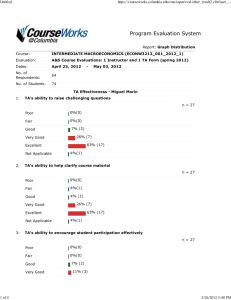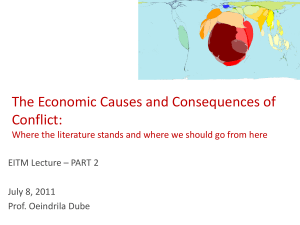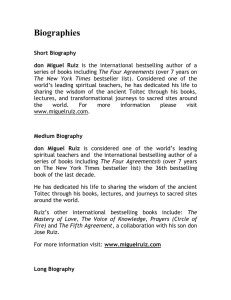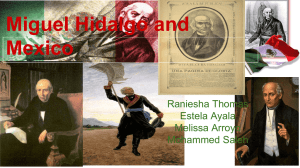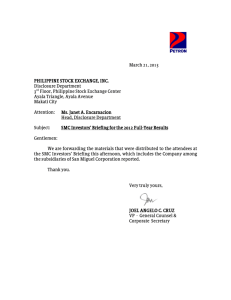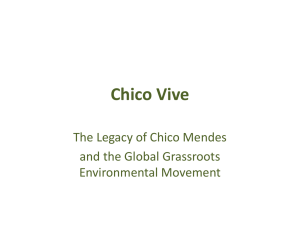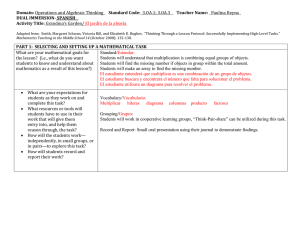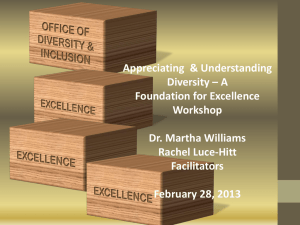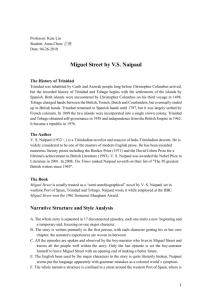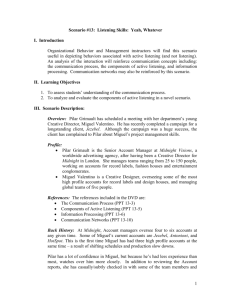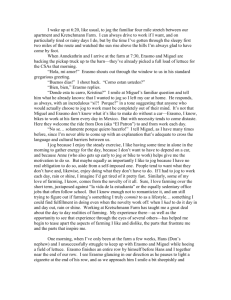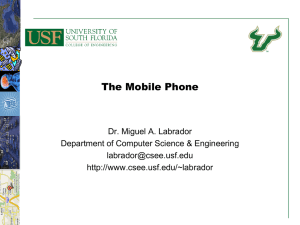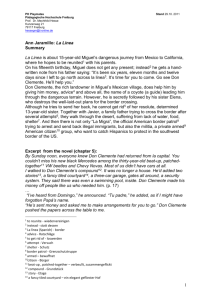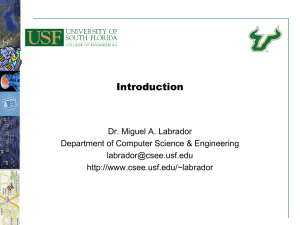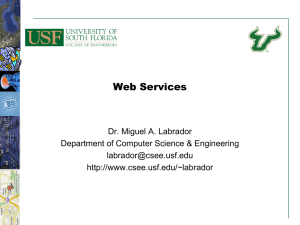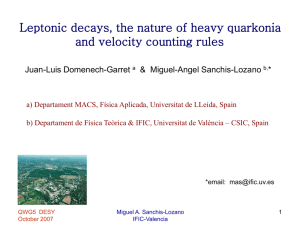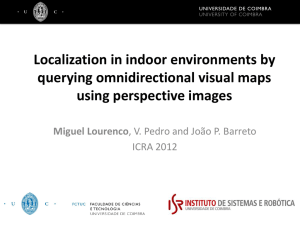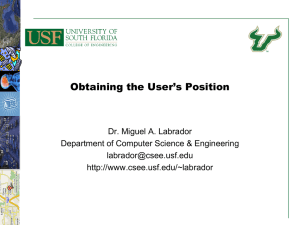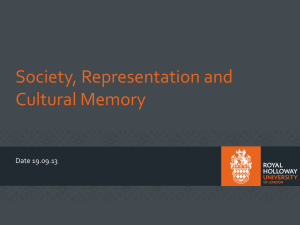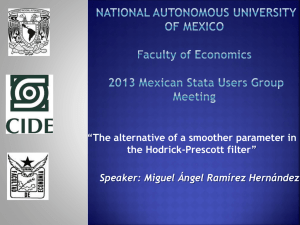Rain God – Part 1 - Fictions of Latino Masculinities
advertisement
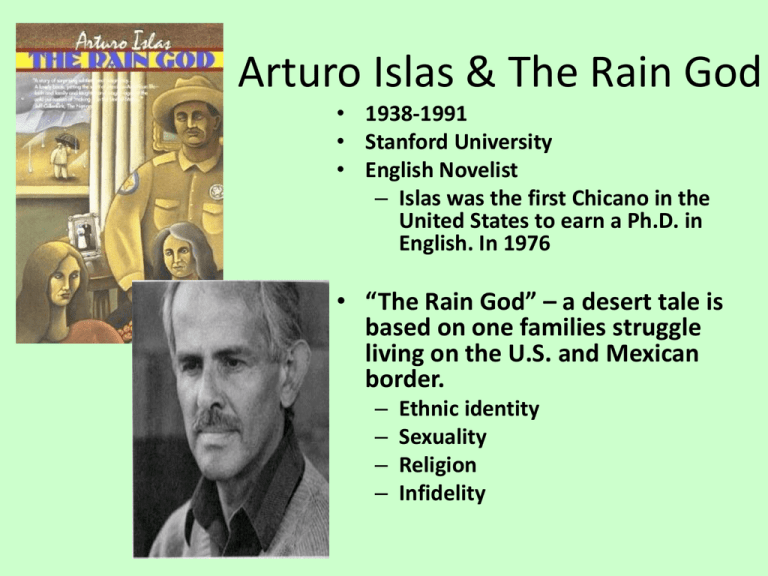
Arturo Islas & The Rain God • 1938-1991 • Stanford University • English Novelist – Islas was the first Chicano in the United States to earn a Ph.D. in English. In 1976 • “The Rain God” – a desert tale is based on one families struggle living on the U.S. and Mexican border. – – – – Ethnic identity Sexuality Religion Infidelity Mexican Immigration Important Dates: • What do we know about it? • Reactions to Image 1911-1929Mexican Revolution 1944-1954“The decade of the wetback” 1989- IRCA allowed amnesty for immigrants already in the U.S. 1990- IMMACT – increase limit of immigration 40% ^ visas Today: About 57% of the total illegal immigrants in the US are from Mexico, totaling about 6,840,000. Living on the Border/Stereotypes • The “Rain God” includes fixed critique of gender and sexuality in a Mexican community. • The entire Chicano culture is created through many different characters who are living examples of the day to day stereotypes of gender and sexuality within a given culture. Miguel Grande- police officer; reigning patriarch of the Mexican Family “Macho” (insecurity?) Lola- hard to deal with – independent “sinverguenzas” (Shameless one); whore Religion (& lack of) in The Rain God • • • Angel family (Symbolic) The entire book is set out to establish to the readers the “saint and sinners” of the Angel family. There are different religious influences presented that affect the Angel family. – Roman Catholic belief, Mama Chona. Her expectations of every family member is to become an angel. Everyone should perfect and follow strict religious rules. • like marriage in church or taking part in religious activities. So one could say the family name Angel has also got a symbolic function. • Sinners – – Miguel Grande – affair with Lola – Felix is homosexual (leads to his downfall in the end.) On the other hand, as another example, – Tia Cuca- not married but has a 7yr relationship – Nina - who believes in spiritual contacts with the dead (not a Roman Catholic belief) of Mama Chona. • Maria, Seventh Day Adventist (belief in the bible verbatim) *important- might be the cause of Miguel Chico not having any faith. Eventually Maria is sent away from the family for taking Miguel to her services. She is soon taken back into the household only if she does not speak of her religion. •Lola also doesn’t have a faith or religion. Judgement/Ethnic Identity • Judgments of one another! • There are many times that the members of the family try to outcast others in their common society who are in actuality just like them. • Mama Chona vs. Maria (the nursemaid) – Mama Chona did not approve of any of the Mexican women her sons and daughters hired to care for her grandchildren… • Miguel Grande vs. Miguel Chico “The North American dream had worked for him. Only his family reminded him of his roots.” (78) “It was another lie to make the people he loved seem as low as his father felt himself to be.” (97) Death • In death the struggle of living on the border again become prevalent. – “Who wants to read about Mexican? We’re not glamorous enough. We just live.” pg41 – Although Miguel did not approve of his brother actions there is still a sense of masculinity he prides him with after he finds out he is dead. “Goddammit, Felix, you’ve got a wife and four kids.” • Miguel Chico – Near death experience is how he is introduced in the book. • The death of Miguel’s neighbor and friend, Leonardo shows already the early scenes of death in the novel. • Maria’s death – “Well the end of the world finally came for her” – Expresses Miguel Chico disgusts for religion Patriarchy in The Rain God by Arturo Islas Learning masculinity within a Latino family Important Relationships in the Rain God Part 1 Miguel Grande Juanita Miguel Chico Lola Learning to “do” masculinity - Miguel chico scolded as a child for playing with Dolls - Miguel Grande ignored son’s weaknesses (severe illness) because of the emphasis of importance on strength as macho - Refusal of affection Sexuality • Gap in expectations for sons and daughters • Male dominance • Sexualization of women serves to signify heterosexualtiy and mark the boundary between gender groups Infidelilty • Culture plays a large role in managing the protection of their parent’s infidelity • Many mediterranian cultures accepted infidelity as a way of life, may have eminated into latino culture of today Latino Paternity Microsystemparent/child relations Bronfenbrenner’s ecological theory of Fatherhoood
